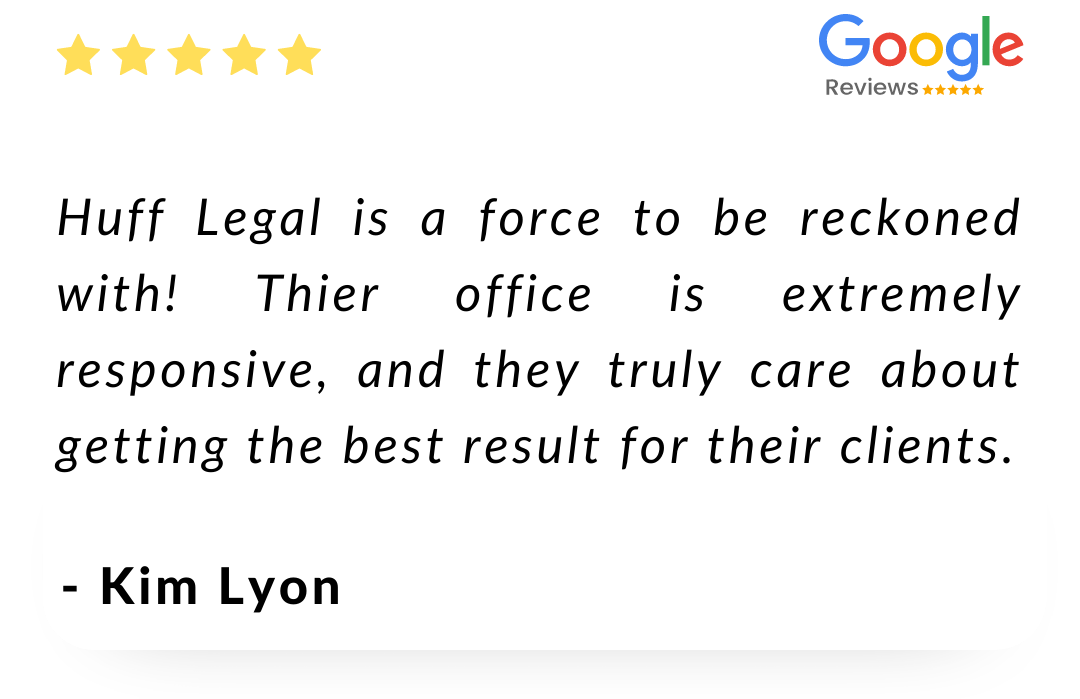DUI vs DWI California: What Is the Difference?
DUI vs DWI California: What Is the Difference?
When it comes to DUI (Driving Under the Influence) and DWI (Driving While Intoxicated) in California, the terms can be confusing. With over 125,000 DUI-related arrests in the state in 2023—an average of more than 340 per day—it’s crucial to understand the distinction.
Many people aren’t sure if there’s a difference or if they face different legal consequences. The uncertainty can cause stress, especially when you’re facing serious charges. Fortunately, California law mostly uses “DUI” to refer to all alcohol-related driving offenses.
In this article, we’ll break down the differences, explain what to expect, and help you understand your options.
DUI vs. DWI in California
In California, DUI (Driving Under the Influence) and DWI (Driving While Intoxicated) refer to the same offense. While other states use both terms to differentiate between alcohol or drug impairment, California law primarily uses DUI. The California Vehicle Code §23152 defines driving under the influence of alcohol or drugs as a crime.
Key points:
- DUI covers both alcohol and drug impairment in California.
- Some states use DWI for alcohol-specific offenses, but California does not.
- Referring to it as DWI isn’t wrong, but DUI is the official term here.
Types of DUI Charges in California
California has various types of DUI charges, depending on the details of the case:
- Standard DUI: When your Blood Alcohol Content (BAC) is 0.08% or higher.
- Enhanced DUI: If your BAC is significantly above the legal limit or if you have a child in the car.
- Drug-related DUI: Impairment from drugs, whether prescription or illegal, can also lead to DUI charges.
Each type of charge brings different penalties, making it essential to understand what you’re facing.
Request a Free Consultation
What’s the Difference Between DUI Charges?
DUI charges can vary based on several factors:
- BAC level: Higher BACs lead to harsher penalties.
- First-time vs. repeat offenses: Penalties increase with each additional conviction.
- Aggravating factors: DUI involving accidents, injuries, or fatalities can elevate charges to a felony.
The penalties range from fines and license suspensions to longer jail time, depending on the severity of the offense.
What's the Difference Between a DUI and a DWI?
In California, DUI and DWI are essentially the same. While other states may differentiate between them, California law uses DUI to refer to all cases of driving under the influence, whether it’s alcohol or drugs. If you’ve been charged, the term DUI will be used regardless of the substance involved.
DWI Meaning
DWI stands for Driving While Intoxicated and is often used in other states. Here’s what you need to know:
- DWI is primarily used for alcohol-related offenses in some states.
- DUI covers both alcohol and drugs in California.
- California only uses DUI in its legal language, though DWI is sometimes used informally.
The individual must engage in actions such as harboring or concealing the murderer, providing them with a place to stay, assisting them in escaping, or helping them in any way that facilitates their evasion of justice.
If Your BAC Is Under 0.08%, Can You Still Get a DUI?
Yes, you can still be charged with a DUI even if your BAC is below 0.08%. Here’s why:
- Impairment matters: If your ability to drive safely is impaired, you can be charged with a DUI, even with a lower BAC.
- Lower limits for certain drivers: Commercial drivers and those under 21 face stricter BAC limits, as low as 0.01%.
Driving with a BAC under the legal limit doesn’t guarantee you’ll avoid a DUI charge if you’re showing signs of impairment.
Minimum and Maximum Penalties for a First DUI Conviction
If you’re convicted of a first DUI in California, the penalties can range from fines to jail time, depending on the specifics of your case. Typically, a first-time DUI is a misdemeanor, but the consequences are still serious. You could face:
- Fines: Anywhere from $390 to $1,000, not including additional court fees and penalty assessments. These extra fees can bring your total financial burden to several thousand dollars.
- Jail time: You might spend as little as 48 hours in jail or up to six months. Often, judges will impose probation instead, which could mean no jail time.
- License suspension: A six-month suspension is common, with an additional administrative suspension from the DMV if your BAC is 0.08% or higher.
- Probation: Typically, you’ll be placed on informal probation for three to five years. During this time, you’ll need to complete a DUI course, which could last between three to nine months, depending on your BAC level.
While probation is common, it’s important to understand the severity of these penalties and take steps to protect your future.
Penalties for a Second and Third DUI Convictions
If you’re convicted of a second or third DUI, the penalties become much harsher. Both are still considered misdemeanors in California, but they have added layers of consequences. For second and third offenses, you can expect:
- Misdemeanor probation: This will last between three and five years.
- DUI school: You’ll be required to attend a second-offender DUI program, which can last between 18 and 30 months.
- Jail time: A mandatory minimum of 96 hours in county jail is required, though it could be extended up to one year.
- IID (Ignition Interlock Device): You’ll have to install an IID on your vehicle for one year, which ensures your car won’t start if you’ve been drinking.
With each conviction, the penalties become more severe, and the loss of personal freedoms increases, making it critical to avoid multiple offenses.
Felony DUI Charges
Not all DUIs are misdemeanors. If certain aggravating factors are present, a DUI can be charged as a felony. Felony DUIs often involve:
- Causing injury or death: If someone is seriously injured or killed, your DUI could be elevated to a felony.
- Multiple offenses: A DUI becomes a felony if it’s your fourth DUI within ten years.
Felony DUI charges come with more serious consequences, including longer prison sentences, higher fines, and the long-term impacts of a felony conviction on your record.

As Seen On












DUIs Involving Deaths or Injuries
A DUI with injuries or fatalities significantly increases the severity of penalties. Here’s how it breaks down:
- DUIs with injuries: If someone is injured as a result of your impaired driving, the charge could be either a misdemeanor or a felony (known as a “wobbler”). If charged as a felony, you could face 16 months to four years in prison, with fines ranging from $390 to $5,000.
- DUIs with fatalities: If someone dies, the DUI can be charged under vehicular manslaughter laws or even as second-degree murder. Manslaughter charges could lead to years in prison, while second-degree murder could result in a much longer sentence.
The emotional and legal consequences of a DUI involving injury or death are profound, and these cases require skilled legal defense.
What Is a DWI Charge?
In many states, DWI stands for Driving While Intoxicated, referring specifically to alcohol-related offenses. However, in California, DWI isn’t commonly used. Instead, California law uses the term DUI, which covers driving under the influence of alcohol, drugs, or a combination of both. While you may hear DWI used in conversation, it’s not the legal term in California.
FAQ
What is the most common penalty for DUI or DWI?
The most common penalty for a DUI or DWI includes fines, probation, and a license suspension. Jail time is also possible, but many first-time offenders receive probation instead.
What is the most common sentence for a first DUI?
For a first DUI, most people face a fine, a six-month license suspension, and three years of informal probation. You may also need to complete a DUI education program.
What is the strictest DUI state?
Arizona is often considered the strictest state for DUI offenses, with mandatory jail time, high fines, and required ignition interlock devices even for first-time offenders.
What is the highest DUI limit?
Most states, including California, have a legal Blood Alcohol Content (BAC) limit of 0.08%. However, for drivers under 21 and commercial drivers, the limit is much lower.
What is the best outcome for a DUI?
The best outcome for a DUI is having the charges reduced or dismissed. If convicted, a favorable result might include probation instead of jail time and reduced fines.
What Clients Say About Us





Schedule Your Free Consultation Today
Get Help from Huff Legal
If you’re facing DUI or DWI charges, understanding your rights and options is crucial. Huff Legal can guide you through the process and work toward the best possible outcome for your case.
Call us today for a consultation. Our experienced team is ready to listen to your story, answer your questions, and develop a personalized defense strategy.
At Huff Legal, we’re committed to providing aggressive, compassionate representation that protects your rights and your future.
LET HUFF HELP YOU
As a former police officer and patrol supervisor and his time spent as a United States District Court Judicial Law Clerk to the Chief Judge, Attorney Huff knows how to navigate all levels of the complex criminal law system. We also have more than 55 years of combined experience dealing with various complex criminal legal matters and have helped just over 1,500 clients over the past few years.
Why Huff Is Your Best Option For Criminal Defense
55+ Years of Combined Experience
At Huff Legal, we have more than 55 years of combined experience dealing with complex criminal legal matters, which can oftentimes be quite challenging. In order to get the outcome you deserve, you need a team of experienced attorneys on your side, who can help you navigate the legal system, so you can move past this situation and focus on the life ahead of you!
5 Star Rating on Google
We have a proven track record of success and are dedicated to our clients’ best interests. If you’re looking for a law firm that will always have your back, look no further than Huff Legal. Just have a look at some of our amazing client reviews over here!
1,500+ Happy Clients
Over the years, we’ve had the privilege of helping over 1,500 clients with their legal needs. When you work with us, you can be confident that you’re getting the best possible legal representation. We’re proud of our track record and our reputation for being a firm that delivers great results.
What Our Clients Say About Us


Sheila


Abel Resendiz


Manuela Frazier


Doris
Contact Huff Today
Request A Free Consultation
* Free consultations only available for Criminal Defense


In legal terms, an accessory to murder refers to an individual who aids, abets, or otherwise assists in committing a murder. While the specifics may vary across jurisdictions, California law treats accessories to murder as active participants in the crime, holding them accountable for their actions. In San Francisco Bay Area, there are two primary types of accessories to murder:
In the event that you find yourself in the Bay Area facing accessory to murder charges, you should first call a criminal defense attorney who can help you defend your rights and lessen the effects of the investigation. Contact an attorney at Huff Legal as soon as possible following your arrest. An accomplished attorney from Huff Legal will thoroughly examine your case, who will then develop a strategy and build a defense.
